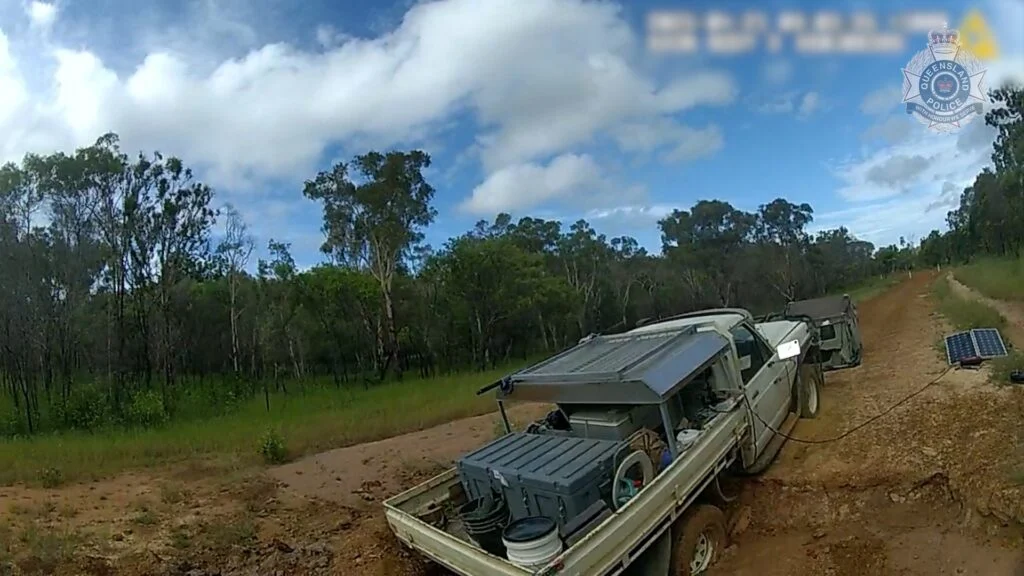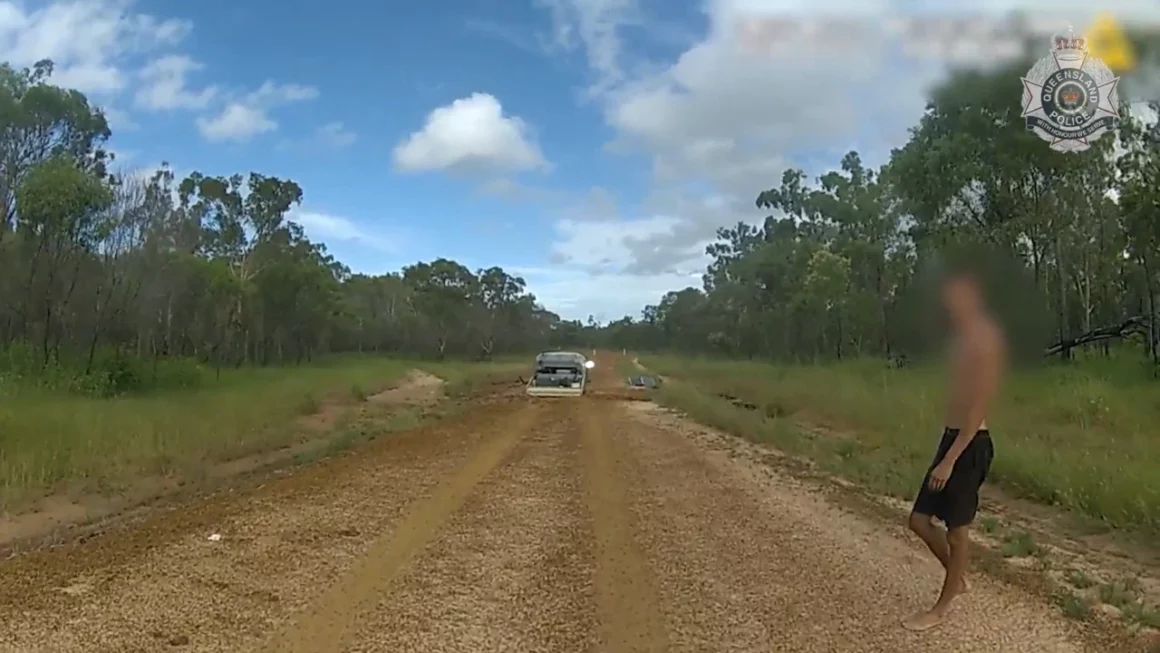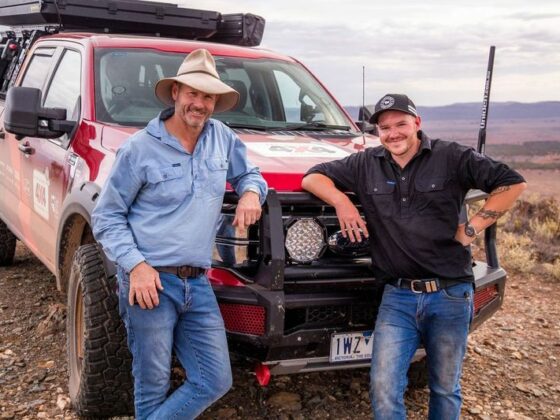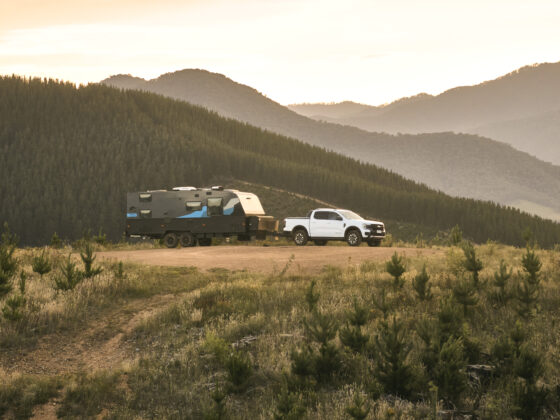Picture this: a young couple, 21 and 19, stuck for three long days in the heart of Far North Queensland’s Cape Melville Track, over 200 kays north of Cooktown and a long way from help. Their ute’s bogged, the road’s shut, it’s wet season, and the track? Officially closed.
They had no clean drinking water nearby, they were days from the nearest shop, and the only thing that saved them from a truly dire situation? Preparation and patience.
Queensland Police winched them out by chopper in the end. But this story could’ve had a very different ending if they hadn’t done a few key things right.
So here’s the thing, touring the remote parts of Australia can be epic. But it can also be bloody unforgiving. If you’re not prepared, it’s not just a busted ego you’ll be dealing with. It could be a rescue operation, or worse.
Let’s break down what happened, what they did right, and what every remote traveller should take from it.

What Went Down
- Where: Cape Melville National Park, a remote, rugged slice of the Cape York Peninsula. Closed to vehicles annually from December 1 to July 31 because the terrain turns into a boggy mess.
- What: Their ute became bogged in soft, wet terrain during the closed season. All nearby roads were also flooded or impassable.
- How long: Three days, completely isolated, before they were winched out by a police helicopter.
- What saved them: They stayed with the vehicle, had food and water, and didn’t panic.
What They Did Right
- Stayed With the Vehicle
Golden rule of outback survival. It’s easier for rescuers to spot a vehicle than a human on foot, especially from the air. If you break down or get stuck, stay put unless there’s an immediate threat. - Brought Enough Supplies
This one’s underrated until it isn’t. They had enough food and water to last, not forever, but long enough for help to arrive. If they’d packed light, this story could’ve ended very differently. - Made a Campsite
They didn’t try to walk out. They set up camp and rode it out. Smart thinking in terrain where you could go missing real fast.
What You Should Do Before Heading Remote
Alright, here’s where this turns into a bit of a tool kit. If you’re planning a remote trip, especially in wet season, or well off the blacktop take this as your prep list, straight from both experience and the people who came back from it.
1. Check Track Status (And Respect It)
Cape Melville is closed for a reason. Between December and July, it’s impassable for most vehicles and completely unsupported. If the signs say closed don’t be a hero. Postpone the trip or head elsewhere. This couple weren’t supposed to be there, and it could have cost them their lives.
2. Satellite Comms Are Non-Negotiable
If you’re out of mobile range (which is most of the time in these areas), have a satellite phone or a personal locator beacon (PLB). In this case, we don’t know how police were alerted, but it sounds like sheer luck or delayed reporting from worried family. Don’t leave it to chance. A PLB can save your life, period.
3. Pack Like You’re Not Coming Back for a Week

We’re taking:
- Plenty of water — minimum 5L per person per day, and more if it’s hot.
- Long-life food — tinned meals, dry packs, MREs.
- Basic shelter — tarp, swag, or tent.
- Warm clothing and something hi-vis.
If you get stuck, survival hinges on having the right gear already onboard.
4. Bring Recovery Gear You Know How to Use
Exitrax, a shovel, tyre deflator, compressor, snatch straps. But gear is useless if you don’t know how to deploy it properly. Learn to recover yourself before you need to.
5. Carry Spares and Tools
For remote touring, that means:
- Spare tyres and puncture repair kit
- Belts, hoses, fuses, and fluids
- Tools to at least remove wheels and fix basic dramas
6. First Aid Kit — And the Know-How
Don’t just carry a big red bag to make yourself feel better. Learn how to use it. Add a snake bite kit, electrolyte tablets, and burn gel — the outback doesn’t muck around.
What Could’ve Gone Better?
Look, we’re not here to throw the book at these two. They made it out alive, and they’re probably having some pretty grim conversations with the police right now. But here’s the cold hard truth:
- They were on a closed track during the wet season. That’s a critical decision-making fail.
- No mention of comms. If they’d had a PLB or sat phone, they might have been rescued earlier, and search efforts wouldn’t have needed to span days and cost the taxpayer a chopper.
Final Word
Remote travel is one of the best things you can do in this country. The landscapes are ancient, the silence is healing, and the sense of freedom is next level. But it’s not just about loading up the 4X4 and pointing north.
Respect the country, pack like a pessimist, and always let someone know your plan. Because once you’re out there, help might not be. And there’s no recovery track for bad judgement.













